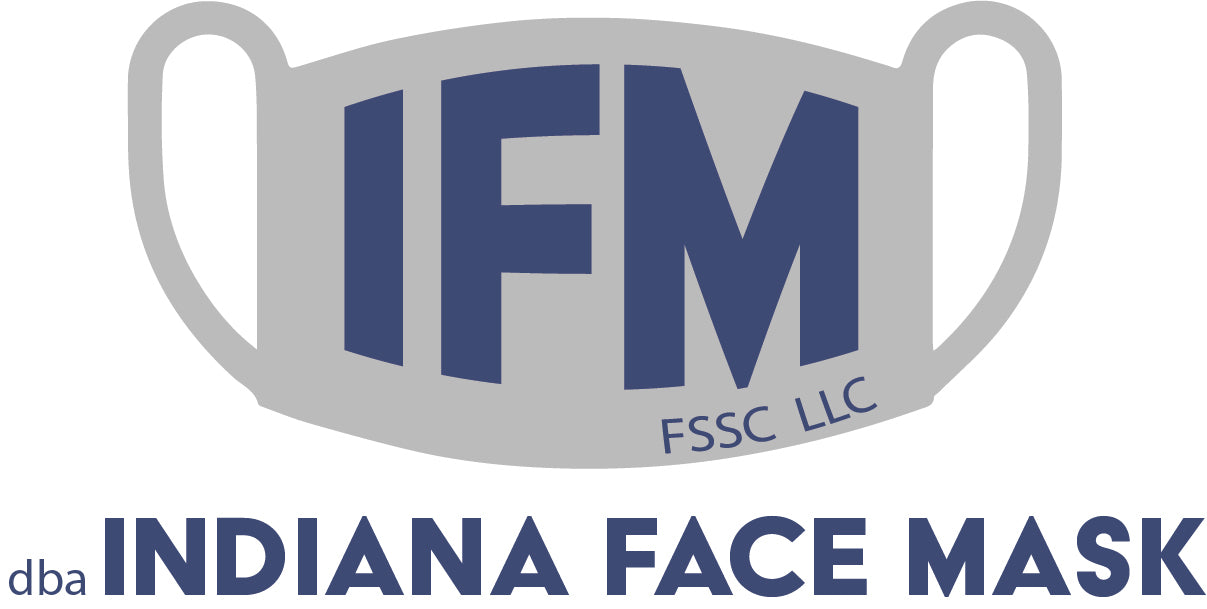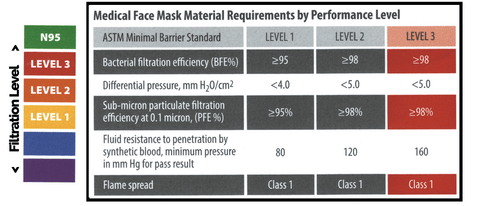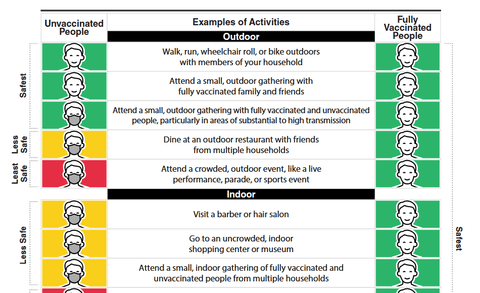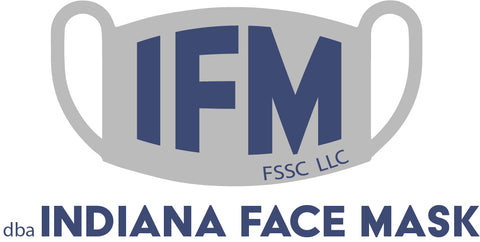Understanding the Different ASTM Levels for Face Masks & Surgical Masks
What is ASTM?
- ASTM International is an organization that defines and sets standards for a variety of products, materials, systems, and services used by people performing their jobs every day. These standards are created to enhance performance of these work tools and improve lives by promoting quality and safety.
- ASTM has over 12,800 standards operating throughout the world, including those that cover personal protective equipment such as medical face masks (e.g., ASTM F2100).
- The U.S. Food and Drug Administration maintains a list of recognized standards, in which ASTM standards are included.
The Different ASTM Levels for Masks:
- ASTM Level 1: Ideal for procedures in which there is low risk of fluid exposure (no splashes or sprays expected).
- ASTM Level 2: Ideal for procedures in which there is moderate risk of fluid exposure (splashes or sprays can be produced).
- ASTM Level 3: Ideal for procedures in which there is high risk of fluid exposure (splashes or sprays will be produced).
Wearing a face mask that has been ASTM-rated (according to ASTM Standard F2100) will ensure that your nose and mouth are protected against fluids, microorganisms, and particulates at the level to which the mask is rated.
ASTM F2100:
- The standard that covers the performance requirements and test methods for materials used to construct medical face masks used in providing healthcare such as surgical services and patient care. ASTM levels are addressed in this standard and are assigned based on material performance in five tested areas.

The 5 Performance Tests of ASTM F2100:
- Bacterial Filtration Efficiency – Determine the bacterial filtration efficiency as directed in Test Method F2101.
- Differential Pressure – Determine the breathing resistance or differential pressure as directed in EN 14683:2019, Annex C.
- Sub-Micron Particulate Filtration – Determine particulate filtration efficiency as direct in Test Method F2299.
- Resistance to Penetration by Synthetic Blood – Determine synthetic blood penetration resistance as specified in Test Method F1862.
- Flammability – Determine flammability as specified in 16 CFR Part 1610




